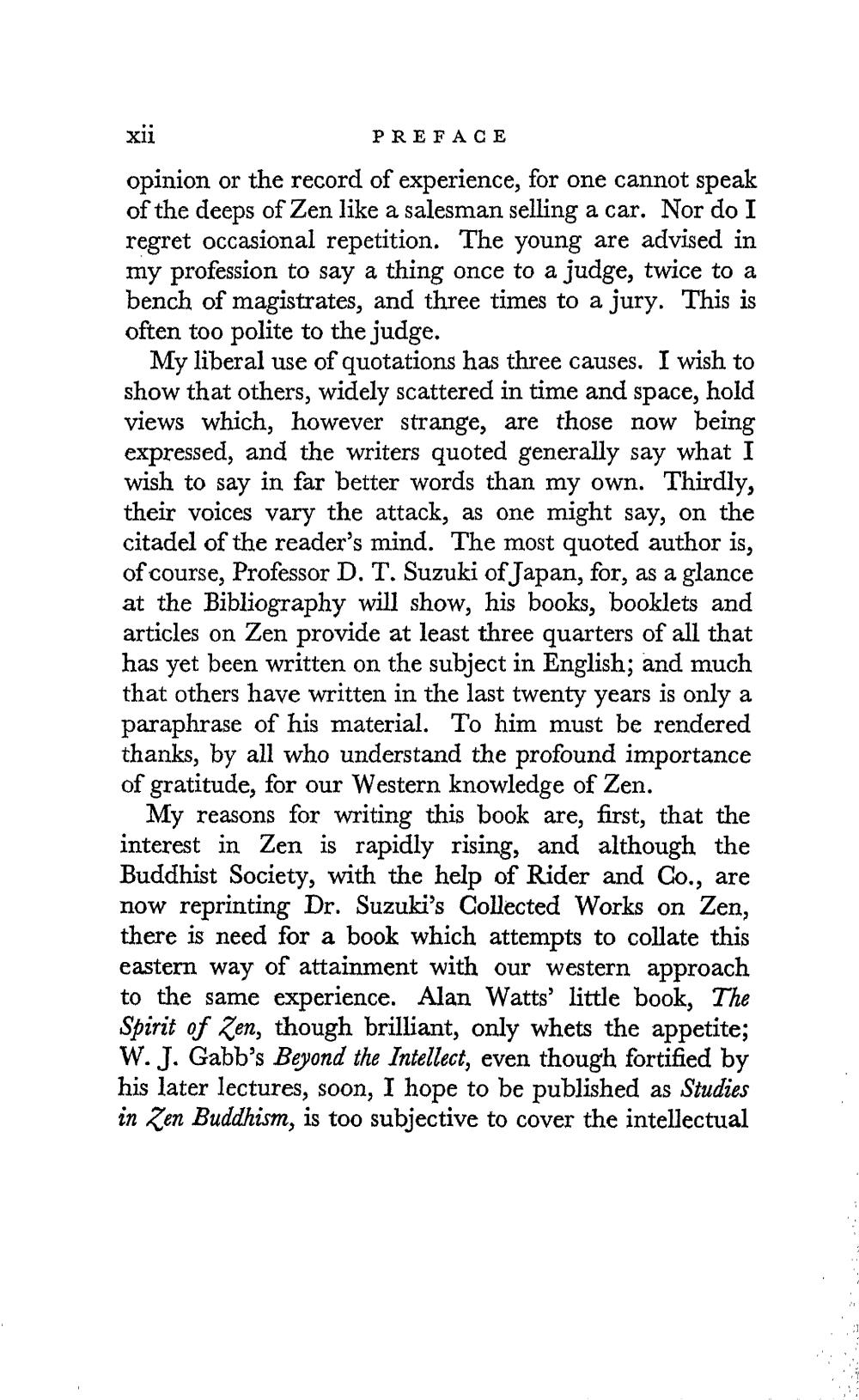________________
PREFACE
opinion or the record of experience, for one cannot speak of the deeps of Zen like a salesman selling a car. Nor do I regret occasional repetition. The young are advised in my profession to say a thing once to a judge, twice to a bench of magistrates, and three times to a jury. This is often too polite to the judge.
My liberal use of quotations has three causes. I wish to show that others, widely scattered in time and space, hold views which, however strange, are those now being expressed, and the writers quoted generally say what I wish to say in far better words than my own. Thirdly, their voices vary the attack, as one might say, on the citadel of the reader's mind. The most quoted author is, of course, Professor D. T. Suzuki of Japan, for, as a glance at the Bibliography will show, his books, booklets and articles on Zen provide at least three quarters of all that has yet been written on the subject in English; and much that others have written in the last twenty years is only a paraphrase of his material. To him must be rendered thanks, by all who understand the profound importance of gratitude, for our Western knowledge of Zen.
My reasons for writing this book are, first, that the interest in Zen is rapidly rising, and although the Buddhist Society, with the help of Rider and Co., are now reprinting Dr. Suzuki's Collected Works on Zen, there is need for a book which attempts to collate this eastern way of attainment with our western approach to the same experience. Alan Watts' little book, The Spirit of Zen, though brilliant, only whets the appetite; W.J. Gabb's Beyond the Intellect, even though fortified by his later lectures, soon, I hope to be published as Studies in Zen Buddhism, is too subjective to cover the intellectual




